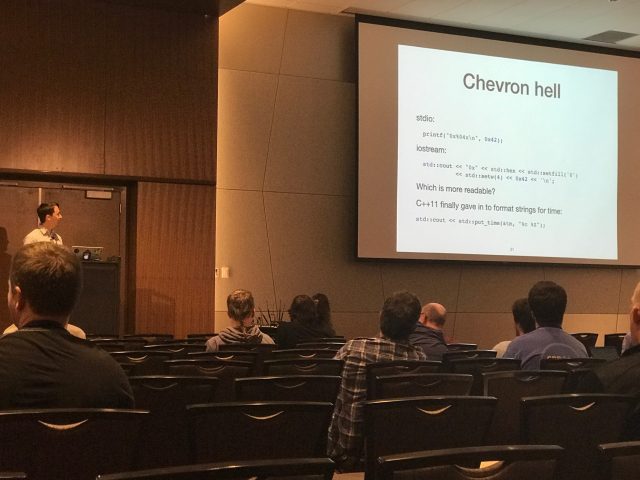#CPPCON2017. Day 1. Hope to get something-better-than-chevron-hell--"No Bugs" Hare
 Cppcon continues!
Cppcon continues!
#CPPCON2017. Day 1. Hope to get something-better-than-chevron-hell
by "No Bugs" Hare
From the article:
IMO, the most important thing which has happened on Day 1 was a series of discussions about potential replacement for overloaded operator << in iostreams <yay! />.
